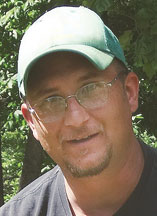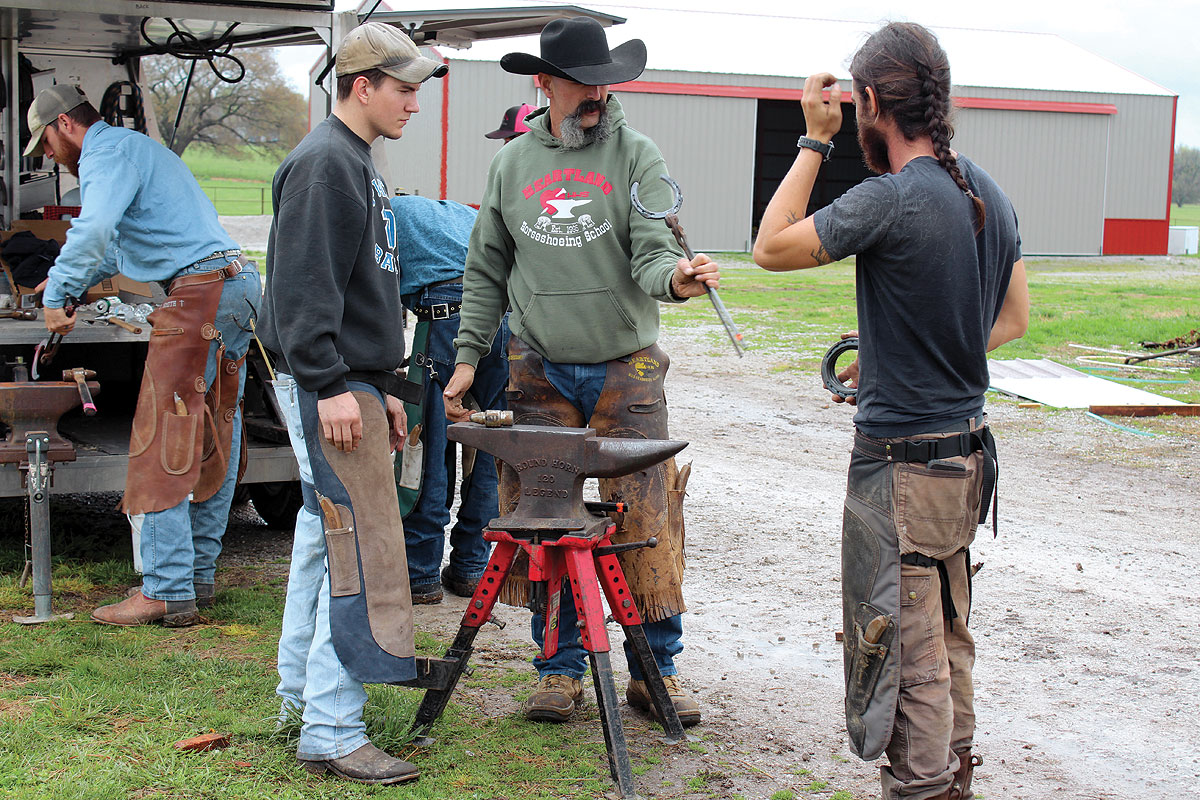
For Steve Guthrie near Miller, Mo., in Lawrence County, Boer goats are no laughing matter. They are what he hopes may provide a full-time income some day, but there are still funny things that happen on the farm.
“I put the stick of shame on them until it falls off and hopefully by then they will have learned not to do that anymore,” Steve said describing a small Boer goat in a nearby pen with about a 2-foot-stick, duct-taped to her horns. “She is really bad about getting her head stuck in the fence. Their horns are shaped kind of backwards so they get their head through the fence but they can’t get it back out. She got stuck about three times in an hour.”
Steve he and his wife, Jessica, have about 40 head on 20 acres they call Guthrie Farms. Not enough to enable Steve to quit his town job as a route driver for Pepsi, but Jessica is home with couple’s two boys, 5-year-old Levi and Logan, who is 3.
They’ve been at this since 2011.
“We bought four and we quickly fell in love with them,” Steve noted. “We try to specialize in colored does, we like the dapples, reds and paints and blacks. For shows, most people like the traditional red head and white body. I like variety but I’ve heard most judges prefer the red and white. But this past year a percentage dapple doe was the first to win at nationals.”
Steve tries to breed for good mothering skills.
“The kind of does you can almost put out to pasture and spit the kids out,” he noted. But he also said that he dotes on them. He has several stalls for kidding and each one has a camera so he can watch them from inside his house.
Parasites are his biggest challenge. Goats are primarily browsers, but they can still get worms from the ground. He uses a combination of electric wire and field fencing and rotates them from pasture to pasture to help with parasite control.
“With cattle and horses, you might look at one and say, ‘That thing’s wormy, I forgot to worm that thing.’ With a goat, if I think it is wormy, the next day it’s dead. They can take them downhill so fast. By the time they are showing clinical signs, anemia in their gums and eyelids, it’s normally too late,” he said.
Steve does fecal exams regularly. He suggests not under dosing with wormer. “Better to overdose, you want a good strong kill. You don’t want anything left behind.” He also recommends rotating wormers.
Steve tries to breed in July or August to have kids in January. He notes that, “most people like them born in January for fairs in the summer.”
He doesn’t breed his does until they are at least a year old.
“We try to wait until they are 18 months so they are almost 2 years old when they have their first kid.” Gestation for goats is five months but Steve only breeds once a year. “We do it for their health…”
“And for our sanity,” Jennifer added.
“Kidding season is pretty hectic around here,” Steve explained. “They are pretty good about doing it on their own, but sometimes you have to go in and sort kids a little bit. Anytime you have two, three or four babies coming out at one time, there’s chances of problems, one coming the wrong way, tangled, breech.”
Goats are known for twinning, and an average of is 1.8 per doe. Steve shared that his average this past spring was 2.6.
“We had two sets of quads,” he explained.
He has a Nubian that he sometimes uses for milk for bottle babies or he may graft a kid onto her.
For protection of his goats, Steve raises Anatolian Shepherd dogs.
“We use them for predator control,” he said. “They run anything and everything off.”
His female Mollie had 12 puppies last year.
“We sell one litter of puppies a year to basically pay for the dog food.”
His dogs are born in the pasture and live with the goats.
“Goats will teach them more than I ever can teach them,” he said, adding that he keeps his puppies with older does or bucks.
Craigslist and a Facebook page are Steve’s primary methods of marketing for both dogs and goats. He takes culls to the sale barn where they’ll end up as meat goats. He’ll sell some breeding does and the highest quality kids will be sold as show animals.
Steve says he’s got something for everybody.
“Anybody could come here and find something they could use,” he said.







